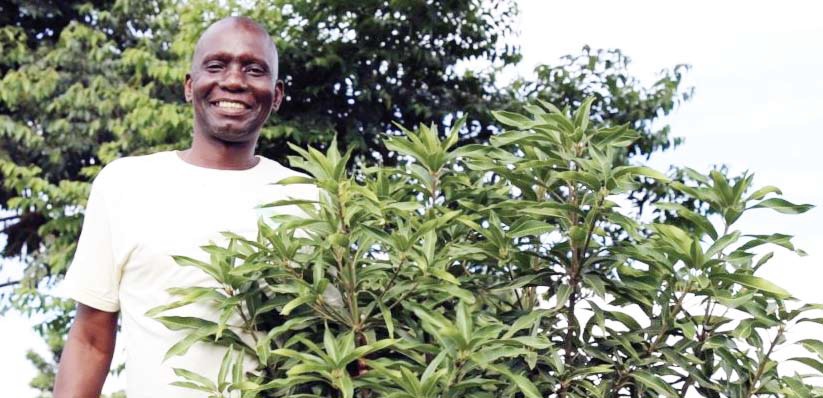A lot of people despise farming and consider it a profession for the lowly in society but to Edward Paul Munaaba, a former Butembe chiefdom minister and an environmentalist by profession, farming is the golden goose that has transformed his life and delivered him from the bondage associated with white collar jobs.
A Swedish graduate of Adaptation and Mitigation (Climate Change), Munaaba worked in several countries before retiring after 28 years to start his own organisation; Edwards Halmet Regeneration Center, that deals in agro-business and climate change mitigation. “Jobs are hard to come by so I had to create one for myself. I had no reason looking for a job when the agriculture sector alone employs over 80 per cent of the population,” he said.
The 56-year-old says he started by training farmers on how to deal with climate change before finally throwing his hat in the ring through his centre. “Whatever is done at the centre is represented by a letter from Edwards; Education, water, agriculture Research, development and sports,” he says. Munaaba began his agro business farming in 2017 on a oneacre piece of land which he acquired from his humble beginnings of farming. “I had Shs3 million which I came with from Tanzania which was my last formal work station. I started with growing passion fruits before I delved into full time commercial farming,” Munaaba says.
He said the decision to venture into commercial farming followed President Yoweri Museveni’s numerous addresses during which he urged people to embrace commercial farming. “I initially had one acre of land but thanks to loan facilities I was able to acquire more six acres and started growing coffee, mangoes, jackfruits, pineapple, bananas and maize on a large scale,” Manaaba says. He says he is also occasionally hired to work as an extension worker and this has helped him generate more money to invest in his farming business.
Bumpy road: Munaaba cites community mindset among the challenges he faces in his farming business. “My focus is to motivate the community and I even try to offer free seedlings to people but many of them are averse to agriculture,” he says. “I have a nursery and whatever comes there I share with the community but people don’t want to plant the seedlings. They prefer cash handouts from politicians,” Munaaba says. He also mentions pests like caterpillars among the threats to his budding farming business.
Prospects: Munaaba is also into bee and fish rearing. He plans to have five hundred bee hives from the current 12 that he now owns. He also has plans to have over fifty fish ponds which are already in the process. “My plan is to turn my project into a farming training centre for the region.
So far I have several students from different institutions who come here for internship,” he says. “The government approached me through the presidential advisor on Poverty Alleviation in Busoga and they chose this farm to be a model farm for the President’s Office,” Munaaba adds.
He says he is also partnering with other organizations such as Umeme, Eskom companies and banks, among others to supply produce. “I have done my best to help the community through my project. I can confidently say that over 200 farmer groups have been formed through my effort effort,” he says, adding that his farm is also attached to Busoga kingdom as a model farm.
Advise to farmers: Munnaaba has advised Busoga residents to avoid addling in town and go back to the village to settle and embrace commercial farming. “Let no one deceive you that they don’t have land. What is true is that they don’t have land in town and cities where they want to stay but they have land in villages which they are renting out to sugarcane growers,” Munaaba says. “You can start small.
I came from Tanzania with Shs3 million and bought land to start farming but three years from now I am targeting to reap Shs1 million daily from farming,” he says.Munaaba has also advised government to stop giving farmers seeds but instead give them fertilizers to make the soil more productive. He slammed Busoga politicians for not doing enough to help farmers.
“With the exception of the Ist Deputy Prime Minister and Kamuli District Woman MP Rebecca Alitwala Kadaga, the rest are not doing enough to help farmers. I give tree seedlings freely but politicians have even failed to transport these seedlings to their constituencies,” he said.




